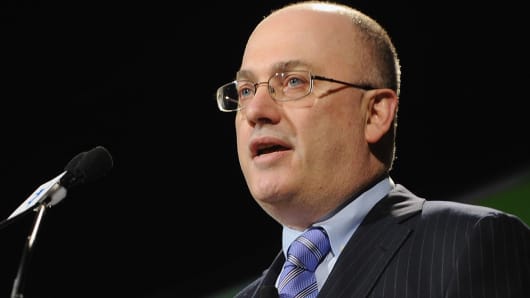Judge Jed Rakoff, who sits in the same federal courthouse as Marrero, rejected an SEC settlement with Bank of America in 2009 and one with Citigroup in 2011. In the Citigroup case, he took a very public swipe at the SEC's policy of letting companies accused of violating securities laws settle cases without admitting wrong-doing.
Rakoff's decision in the Citigroup settlement is now on appeal. But it seems to have inspired judges across the country to look more closely at SEC settlement proposals.
Marrero hinted today that he might want to see what the appellate court says about Rakoff's case before making a ruling on the SAC settlement.
There's something at least a little absurd about Rakoff-ing a settlement. It's not like a judge can actually make the enforcement division try harder. If the SEC is bent on not pursuing a case against a company any further, there's not much a judge can really do about it. In fact, the SEC's reaction to Rakoff's Citigroup decision was to publicly criticize it and immediately appeal it.
On the other hand, there's always been a lot absurd about the SEC's settlement practices. Typically, the SEC staff negotiates a settlement before any complaint is even filed against the accused. It then files the complaint at exactly the same time as the settlement. The settlements usually require the accused to neither admit nor deny the allegations; promise never, ever to violate securities laws; and pay some fine. That fine, by the way, doesn't come out of the pockets of anyone actually accused of wrongdoing—it's paid by the company, which means the shareholders.
The settlement negotiations are fraught with conflicts of interest. The lawyers for the accused are often former SEC enforcement staffers; the lawyers for the SEC will some day likely apply for jobs at the law firm representing the accused. It hardly seems radical to question whether these negotiations are likely to produce results in the public interest.
The amount of the fine here could also give Marrero pause. While $602 million is a record-breaking amount for an insider trading case, it's pocket change to SAC Capital. Cohen, SAC's founder, just spent over $150 million on a single painting and over $60 million on a summer place out in the Hamptons. A guy who can throw around that kind of scratch isn't likely to be chastened by a $602 million fine that doesn't require him to admit ever doing anything wrong.



